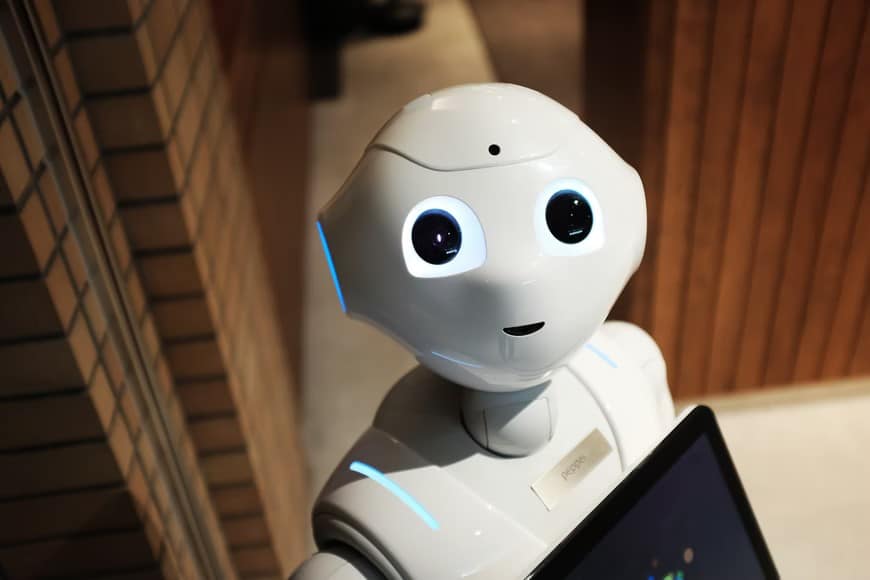How AI & Humanoids Will Revolutionize the Workforce
Artificial intelligence has become a lot more sophisticated and helpful over the last few decades. At the end of the 20th century, AI was still very rudimentary and couldn’t accomplish many tasks. Robots in the workforce existed within the pages of sci-fi books alone.
Today, the picture is very different. We use AI in our everyday lives, with “personal assistants” like Siri and Alexa, and it’s not uncommon for us to encounter robots in the grocery store or to interact with AI-powered systems. Technology has reached the point where it can start really doing some heavy lifting.
Although we’re not at the point where millions of jobs are being taken over by robots (at least, not for many, many years!), artificial intelligence is becoming a much larger presence in the workforce. Soon, it will revolutionize it. Here’s how.
AI Is Becoming a Standard Part of All Workplaces
Most people haven’t noticed or don’t fully understand how integrated AI has become in most workplaces. Since artificial intelligence technology is currently quite specialized, it usually appears in specific contexts, rather than as a recognizable presence in the workforce. Still, it’s there, even if AI’s human colleagues don’t yet realize it.
AI is already at work in nearly every industry. When we shop for products online, chatbots and shopping personalization is driven by AI. In healthcare, robot-assisted surgery and nurse robots are easing the burdens on doctors and nurses while helping to ensure better patient outcomes. In transportation, autonomous vehicles are improving and poised to revolutionize how we get from Point A to Point B.
Overall, these different, yet powerful AI functions in the workplace have improved our lives. Our ability to process and leverage data has allowed organizations across industries to make their processes more efficient and better serve customers.
AI and Cyber Security for Businesses & Individuals
Cybersecurity has become an integral part of our economy as workplaces become increasingly dependent on the internet and cloud services. Many billions of dollars a year are lost due to cyberattacks and companies have to invest in preventative measures so they don’t end up losing their market share in the fallout of a data breach.
The good news is that AI is well-suited to assisting with cybersecurity measures. Automated scans are incredibly efficient, allowing for threats to be prevented or detected early, without the need for human intervention. As data mining is a tedious and time-consuming process, most cybersecurity professionals are glad to have more time for high-level tasks while having the peace of mind that their systems are being protected.
With that said, it’s important to realize that cybercriminals are using technology to their advantage as well. Organizations need to understand the pros and cons of AI in cybersecurity and put safeguards in place that allow them to use AI safely for security tasks. Manual audits from time to time can help with this.
How AI Can Help With Diversity & Inclusion Efforts
In the United States, many companies are falling short of maintaining a diverse workforce and an inclusive workplace. Implicit biases and fear of change often stand in the way of diversity and inclusion initiatives, and the workplace can be hostile for the few people considered “diverse” within a given organization.
While it’s not a cure-all for these problems, AI can help companies do better. There are many hiring tools available today that are powered by AI and designed to help hiring managers in their talent acquisition efforts. As of 2020, around 70% of companies are using AI in some capacity in the hiring process and believe it will help them build a better, more diverse workforce that will drive innovation, corporate culture, and revenue.
One of AI’s greatest benefits in hiring is objectivity: it can create a pool of candidates and look for specific attributes, without any biases coming into play. With that said, it must be used properly or it may channel the biases of those who are using it.
Increased Automation Can Create New Jobs & Improve Work
Although there will always be people protesting automation due to their fears of robots taking over the world, AI is overall making a positive change in the workforce. Naturally, some jobs eventually will be taken over by robots—but that doesn’t mean we will necessarily lose jobs over time. Increased automation will take over tasks that people often find tedious, dangerous, or unpleasant, while potentially creating new job opportunities.
If we can increase efficiency while improving daily work for employees, why shouldn’t AI become standard in the workforce? As humans, our superpower is generalized problem-solving. Right now, AI can’t do that—but it can take over some responsibilities so we have more time for the tasks that require our unique human abilities.


























